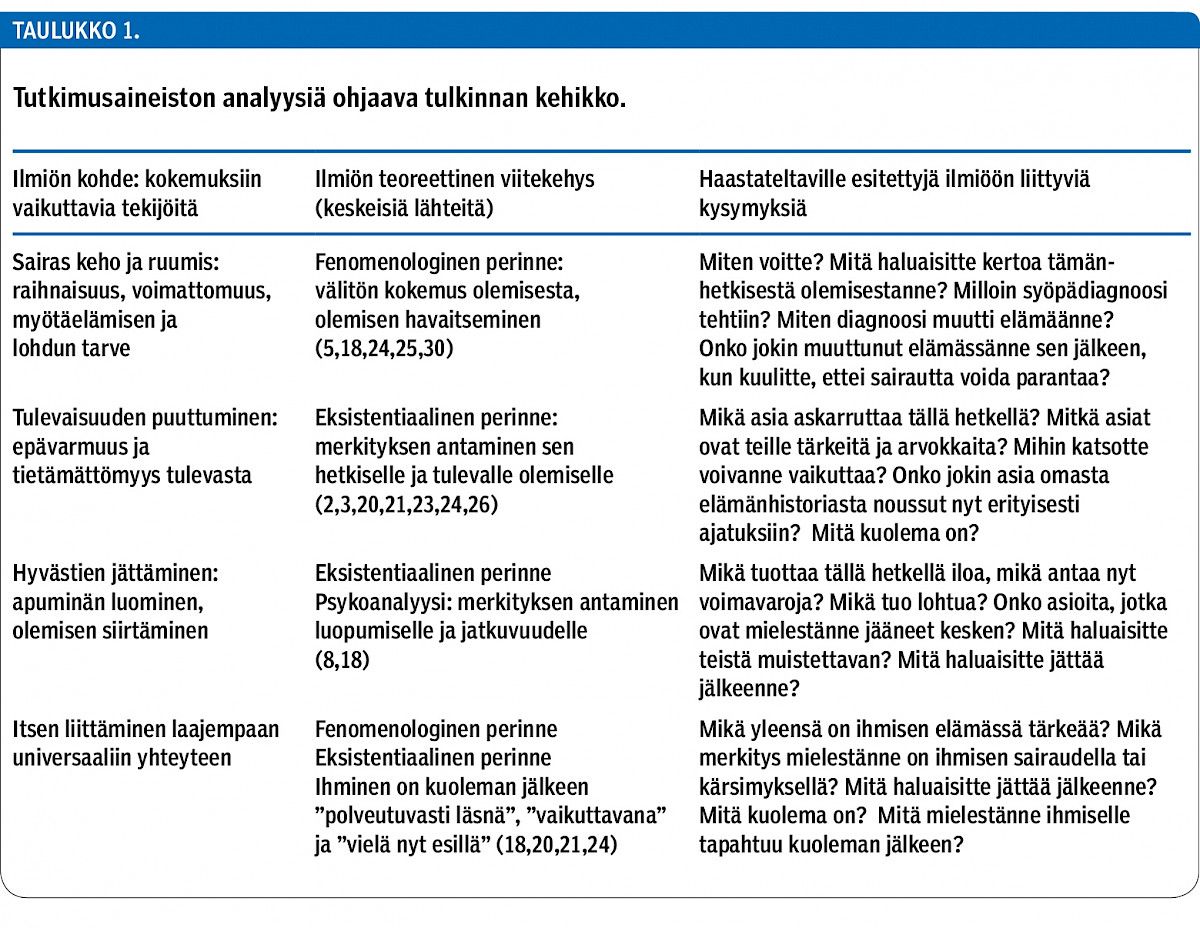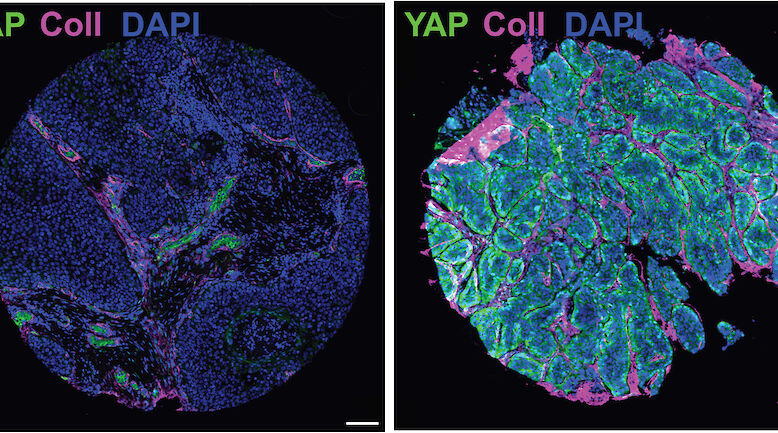Existential suffering of cancer patients in palliative care
Background
The study describes how cancer patients receiving palliative care experience existential suffering, factors that impact it, and its manifestations. The purpose of the study is provide information for social and health care professionals that allows them to improve end-of-life care so that it better meets the special needs of dying patients. The results of the study can be utilized in dealing with anxiety caused by approaching death or in preparing for death. They offer a possibility to find ways to identify patients’ existential needs and related aspects of suffering and thereby help reinforce their own resources for enduring suffering.
Methods
The theoretical material of the study is comprised of philosophical literature, scientific articles and studies, and empirical data from thematic interviews of eight cancer patients receiving palliative care and research journal entries. The interviews were collected from the Northern Ostrobothnia and Lapland hospital districts and they were analyzed using a framework created on the basis of the theoretical material.
Results
Existential suffering involves the following phenomena: first, the sick body, frailty, and infirmity; second, lack of a future; third, leave-taking; and fourth, linking oneself to a broader universal unity. Existential suffering culminates in the realization that everything is ending. Still, there were visions of continuing existence. Approaching death brought sorrow and started a process of relinquishing, but it also signified being free. The interviewees hoped they could affect the last phases of their life. The most suffering was caused by the thought that they would lose the possibility to control their own life because of pain or ignoring of their own will.
Conclusions
A dying person has a need to ponder his/her existence at the present and after death. Because a dying person often wants to spare his/her dear ones, it is important that professionals provide the possibility to do so. It is essential to help him/her find resources within himself/herself for enduring existential suffering. Care methods include empathetic interaction and sensitivity. Additionally, suffering can be alleviated by end-of-life care planning that includes verifying the place of care and death beforehand and taking the will of the dying person into consideration.














